International Journalism Week 2023
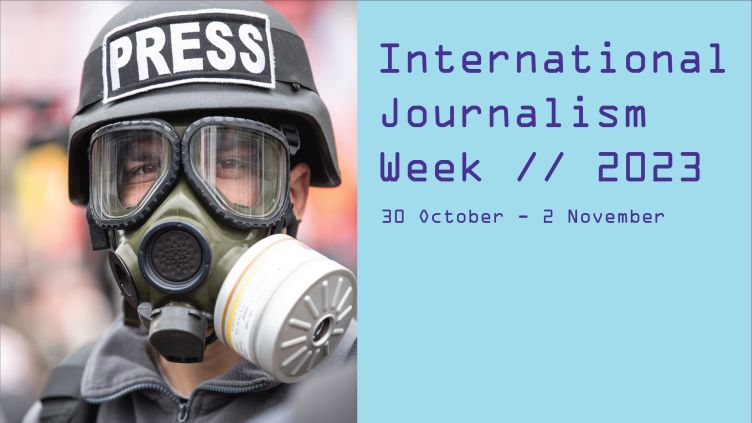
International Journalism Week (IJW) 2023 took place from 30 October until 2 November. CFOM hosted a panel on 2 November, the same day as International Day to End Impunity for Crimes against Journalists (IDEI). The panel focused on the uses and the misuses of law.
CFOM and UNESCO Chair on Media Freedom, Journalism Safety and the Issue of Impunity Professor Jackie Harrison (right) opened IJW with a keynote speech on 30 October. Jackie spoke about the threats that journalists face in the work that they do alongside the issue of impunity. She discussed the types of threats journalists face including online harassment, legal harassment and economic harassment too. You can watch a recording of Jackie’s keynote by clicking on the button below.
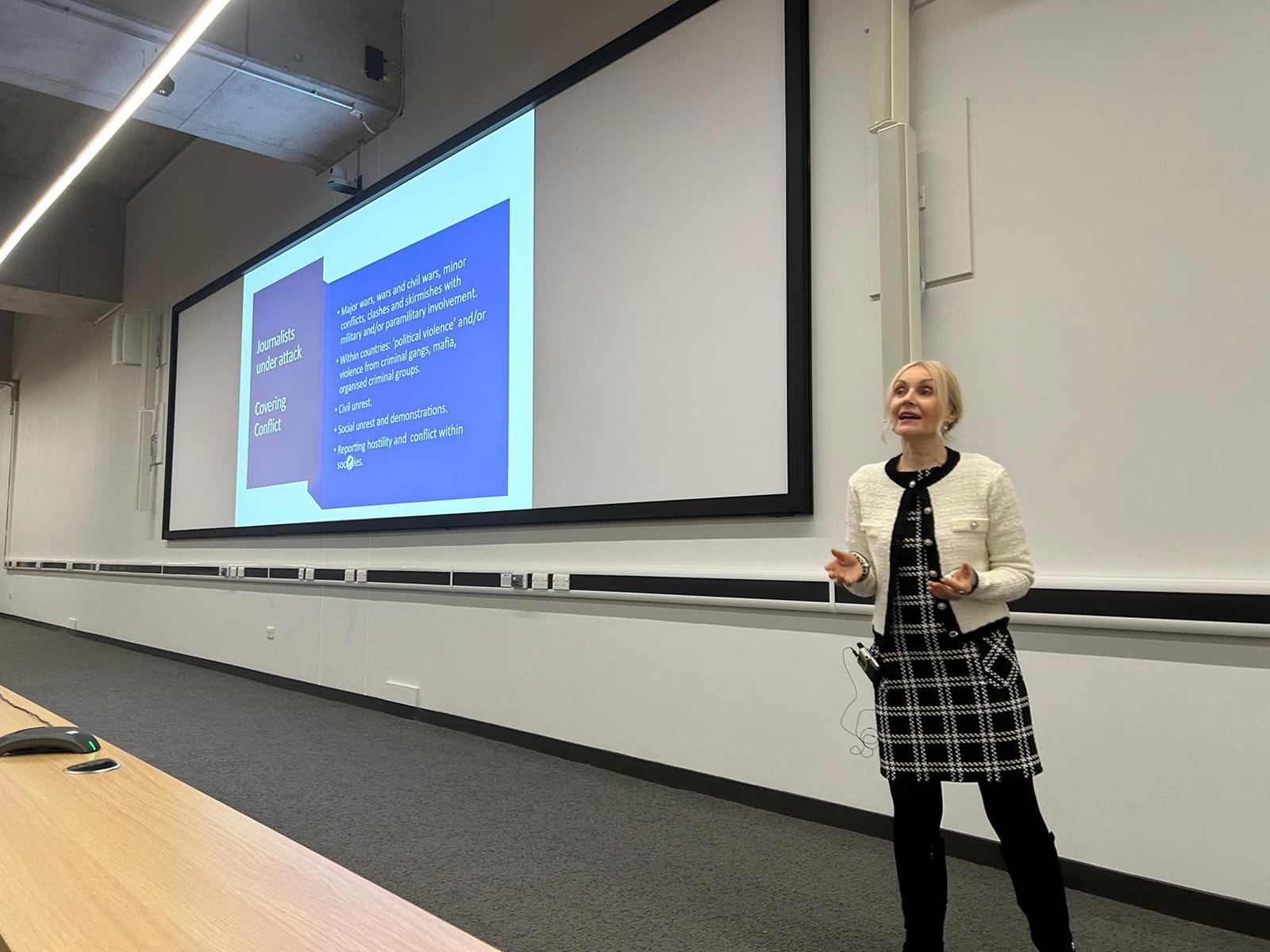
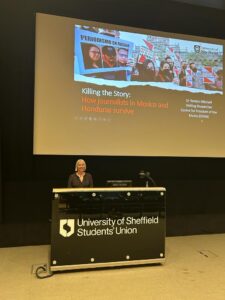
CFOM’s ESRC Postdoctoral Fellow, Tamsin Mitchell, also delivered a talk as part of IJW and the Festival of Social Science on 1 November. Tamsin spoke about journalism safety in Mexico and Honduras. She spoke about how these countries are two of the most dangerous places for a journalist to work in and the issues surrounding impunity. Tamsin also discussed how there had been a rise in non-fatal attacks too through the growth of online harassment and legal harassment. She spoke about the strategies that journalists are employing to keep themselves safe, such as through activism. These actions have included setting up NGOs and organising protests and vigils. You can watch the recording of Tamsin’s event below.
CFOM Panel on uses and misues of media law
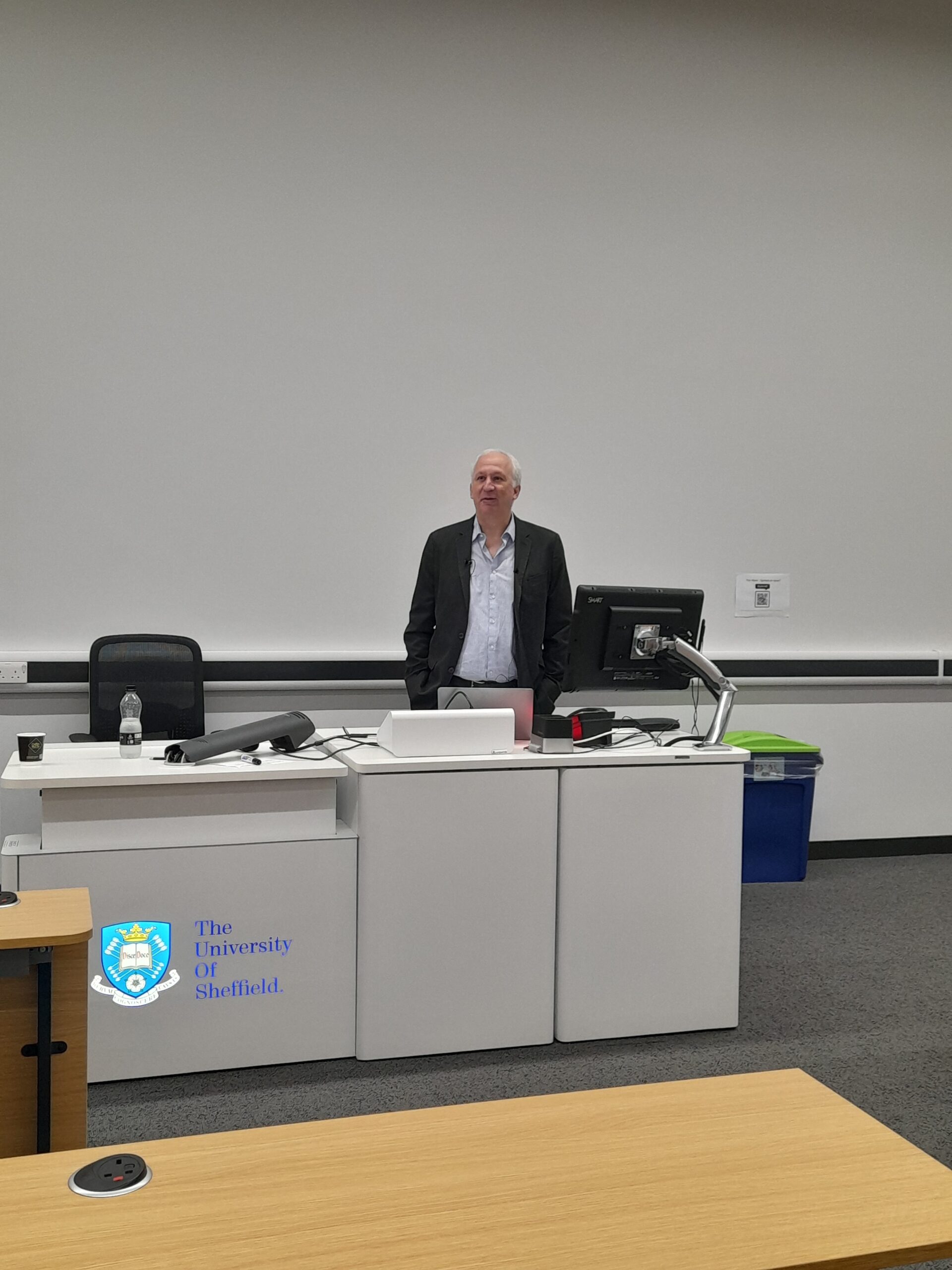
The CFOM panel was moderated by our International Director William Horsley. The panel consisted of three speakers who delivered presentations before taking part in a Q & A session. The first speaker was David Banisar (left), a visiting Senior Fellow at the London School of Economics and a former Senior Legal Counsel at ARTICLE 19. David spoke about the current legal threats that are impacting journalistic freedom today. In particular, he noted that Strategic Lawsuits against Public Participation (SLAPPs) have become an increasing issue in the past ten years and noted that the current legislative proposal which focuses on tackling SLAPPs being used for reporting on economic crimes does not go far enough. He also discussed issues concerning the protection of sources and current legislation and issues of how it is interpreted by security forces. Additionally, concerns were raised about UK media law being overly complex with there being judge made law, the European Convention on Human Rights to consider, and legislation passed through Parliament.
Philip Leach (right), Professor of Human Rights Law at Middlesex University in London, spoke about the European Court of Human Rights (ECtHR) and cases that have come before the Court focusing on issues of media freedom. Philip spoke about the European Human Rights Advocacy Centre (EHRAC), based at Middlesex University. He discussed how the EHRAC had been involved in human rights cases arising in Russia, Ukraine, Georgia, Azerbaijan and Armenia. He noted how the ECtHR has seen an increases in cases concerning Article 18 of the European Convention on Human Rights. Article 18 states that restrictions cannot be used for ulterior purposes, such as political prosecutions or acting in bad faith. He noted that we have seen a rise of this happening in Europe in the recent years.
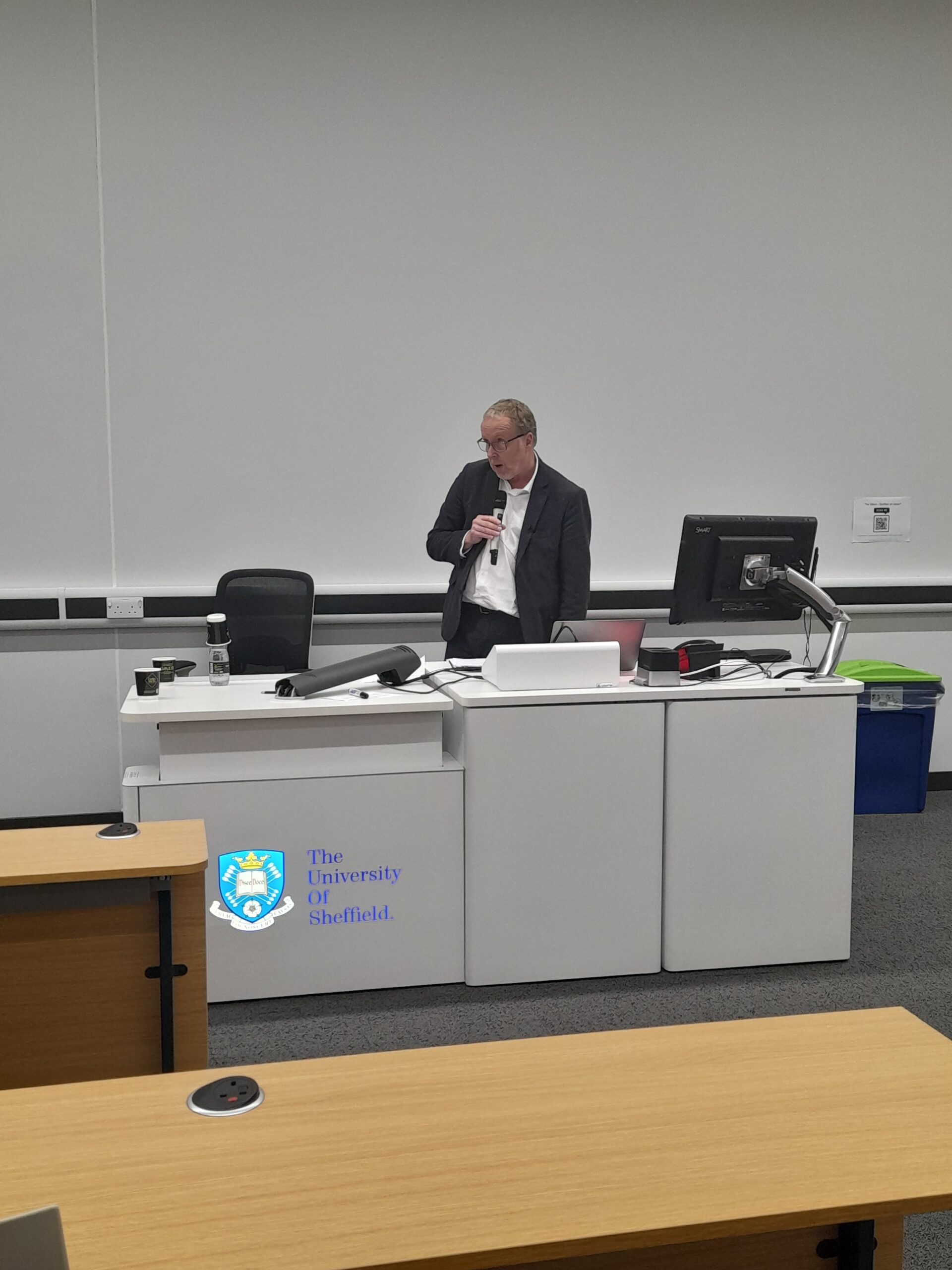
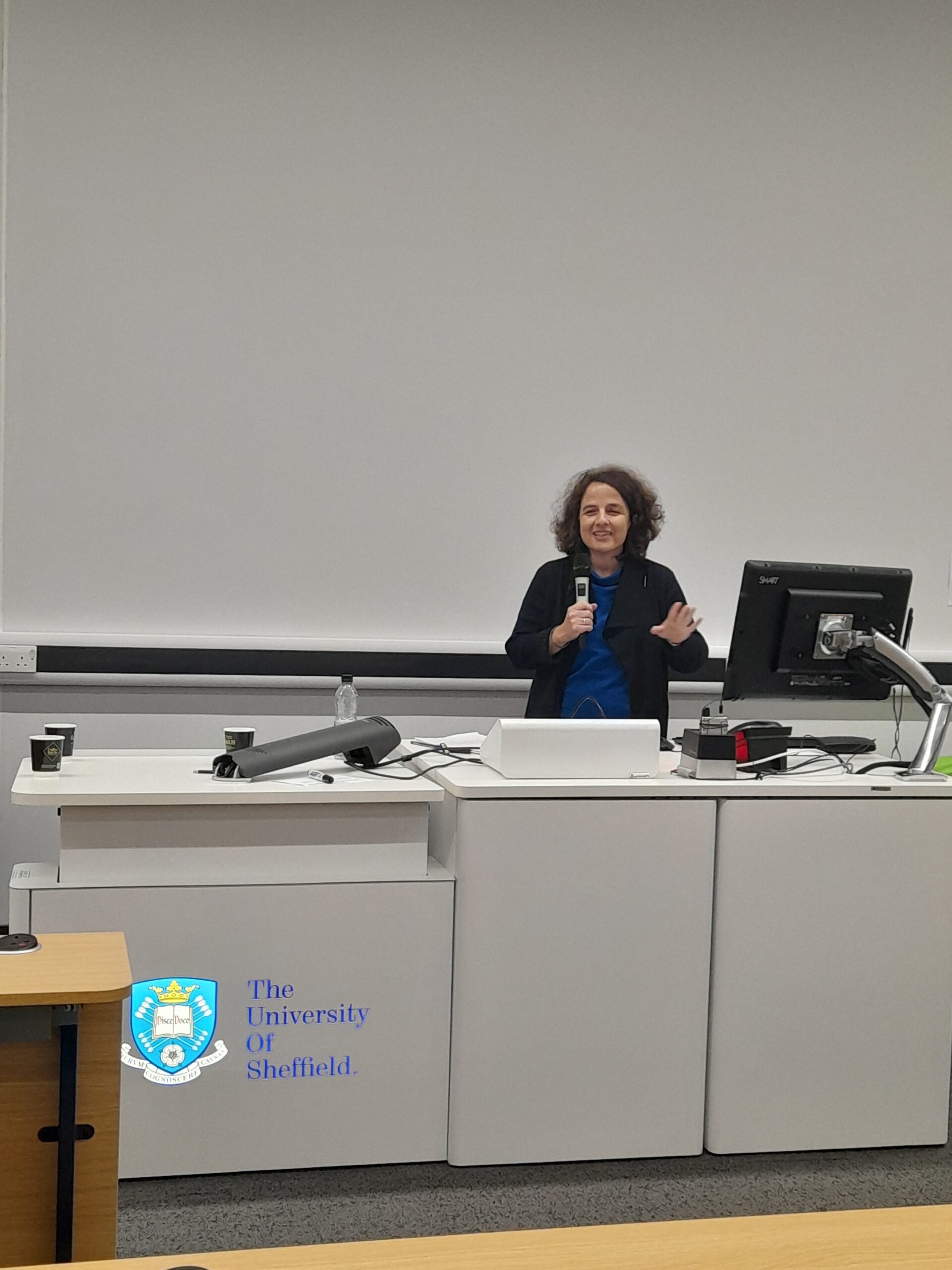
The final panellists was Dr Irini Katsirea (left), Reader in International Media Law at CFOM and the School of Journalism, Media and Communication. Irini spoke about mis/disinformation and the impact that this has on journalism. In particular, she focused on the tech platforms and their role in regulating mis/disinformation. She spoke about the difficulties of regulation on social media, in particular that this could have a chilling effect on speech in some cases. She also acknowledged how regulation was taking place in some countries, such as Germany.
The CFOM panel is held every year as part of International Journalism Week. You can watch a recoding of the panel by clicking the button below.
CFOM panel on Journalism Safety during Elections
As part of IDEI, CFOM also hosted an online panel event that focused on journalism safety during elections. With 2024 being a big upcoming year for elections, the panel talked about the current journalism safety issues that journalists face. These include online harassment, smear campaigns from government, being denied access to report elections and also gendered harassment. The panel also talked about their work in elections and how impunity is a predominant issue. You can watch the panel event below. Panel speakers included:
- Anna Averkiou, an international journalist, media consultant and trainer, specialising in strategy and reputation management.
- Mariam Gersamia, a media psychologist, professor at Tbilisi State University (Georgia), head of Master Program “Media Psychology and Communications”, founder of non-governmental organization “Media Voice” and media program manager at Transparency International Georgia.
- Patrick Mutahi, Media and Protection Consultant at ARTICLE 19 Eastern Africa
- Fiona O’Brien, UK Director for Reporters Without Borders.
- Elodie Vialle, a journalist and an Affiliate at the Berkman Klein Center for Internet and Society at Harvard. She also serves as a Senior Advisor on Digital Safety and Free Expression at PEN America.
- Lucy Westcott, Director of the Committee to Protect Journalist’s (CPJ) Emergencies Department
